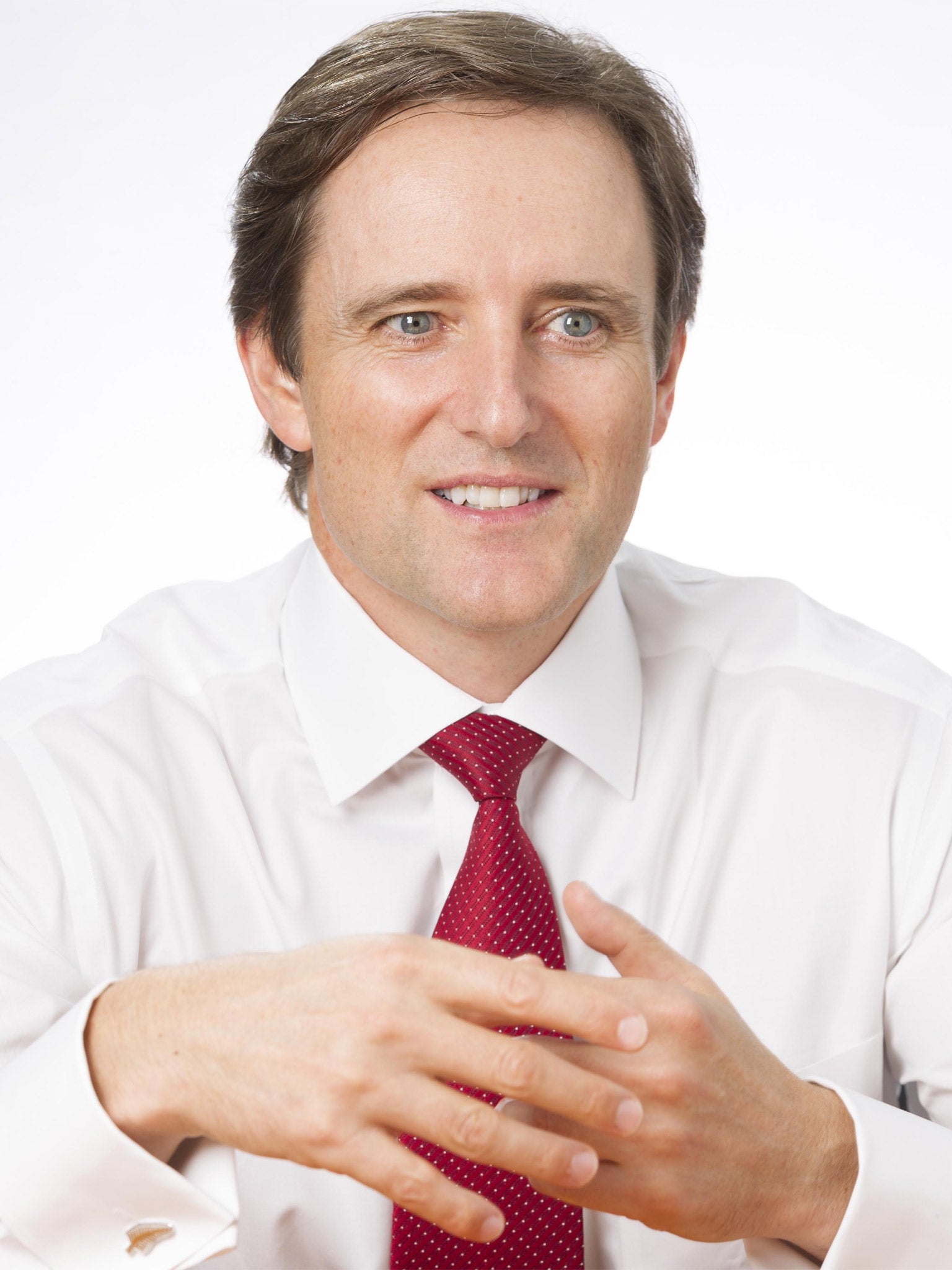Mark Wilson: Aviva's new chief plays the blame game
Chief executive points the finger at his predecessor to explain the insurer's losses and a cut in dividend

"Disappointment", "uncertainty" and "transition" were some of the terms used by Aviva's management team yesterday as they addressed analysts and investors in London.
Explaining the insurer's £3bn of losses, a 44 per cent dividend cut and the scrapping of bonuses for senior directors, the company left bystanders in no doubt who was to blame. Mark Wilson, the group's new chief executive, made it clear he had inherited a company in need of life-saving surgery after years of mismanagement under his predecessor, Andrew Moss.
"It's like climbing up an escalator that's going down," he said. "I joined Aviva because I believe there is significant potential to be unlocked. This is a turnaround story. It is clear to me that the company has not articulated why investors should buy or hold Aviva shares."
Aviva's loss, which compares to a £60m profit in 2011, was driven by £3.3bn of write-downs linked to the sale of its US business to Athene Holding in December. The group also bowed to market pressure and cut its final dividend by 44 per cent to 9p following weeks of speculation.
The decision came just over a fortnight after rival RSA rebased its dividend and led to Aviva shares falling 45p to 314.8p, a slump of more than 12 per cent, which wiped almost £1.4bn from the company's market value.
As well as scrapping bonuses for executives, Mr Wilson said pay would be frozen for 400 senior staff at the company while it was overhauled.
He would not rule out further job cuts among its 36,000 employees, which include 18,000 in the UK, and said he would simplify a company that has so far sold assets in America, Russia and Spain since Mr Moss departed.
"I believe very strongly in paying for performance. Our overall spend on bonuses at senior levels will match the business performance and will be based on rigorous differentiation between performance levels. We will focus the money available on our top performers who made the largest contribution."
He added: "The insurance sector has made an industry out of complexity. We need to be simple and as predictable as a Swiss clock. That is my promise."
Now that the full extent of Aviva's problems are out in the open, investors say it is time for the company to stop dwelling on the past and take decisive action. Put quite simply, in the words of one expert: "The blame game must end now."
Aviva parted company with Mr Moss last May following a shareholder backlash at its annual meeting. He was criticised for repeatedly changing its strategy while shares tumbled. Since then, the insurer has sold businesses and put others on the block to slim its structure, which has so far been well-received by the market.
Most analysts also agree that rebasing the dividend was the right thing, as it allowed the company to reallocate capital to where it is needed.
Barrie Cornes, analyst at Panmure Gordon, said: "Whilst many investors will be very disappointed, we believe this removes the potentially damaging uncertainty over a future potential cut. The saving will be used to restructure the business as it looks to lower internal and external debt.
"We believe that the removal of the uncertainty of the dividend will strengthen the investment case, but in the short term there will be pressure on the share price."
Shareholders say they will be watching closely for more signs of recovery over the coming months.
"The results were disappointing," said one of Aviva's largest investors yesterday. "While the dividend decision probably makes sense, medium term they are a serial offender. We want significant operational improvements."
For others, Aviva's problems are simply a sign of wider problems in the global insurance industry.
Mark Flenner, insurance partner at KPMG, said: "Yesterday's news is just the tip of the iceberg: we expect to see more large insurers making non-core disposals of businesses ... the major insurers' boards are heavily focused on business portfolio management and we are seeing them take different strategies to execute reorganisation of their portfolios, including share buybacks, special dividends, dividend reductions and disposals. We expect the global reshaping of the insurance market to pick up the pace in 2013."
For now though, Aviva will hope its shares recover from yesterday's price ahead of its annual meeting in May, which is likely to be less volatile than last year's because of the company's decision to scrap bonuses.
Philip Meadowcroft of the Norwich Union Policyholders' Action Group, warned: "The chairman and chief executive will need to be able to articulate and persuade what is likely to be an acutely sceptical audience that they have the individual and team competency to manage Aviva and effect the turnaround shareholders are increasingly and desperately looking for."
Aviva in numbers
£3bn of losses compared to a £60m profit last year
44% cut in final dividend to 9p a share
36,000 employees, which include about 18,000 in the UK
Subscribe to Independent Premium to bookmark this article
Want to bookmark your favourite articles and stories to read or reference later? Start your Independent Premium subscription today.

Join our commenting forum
Join thought-provoking conversations, follow other Independent readers and see their replies